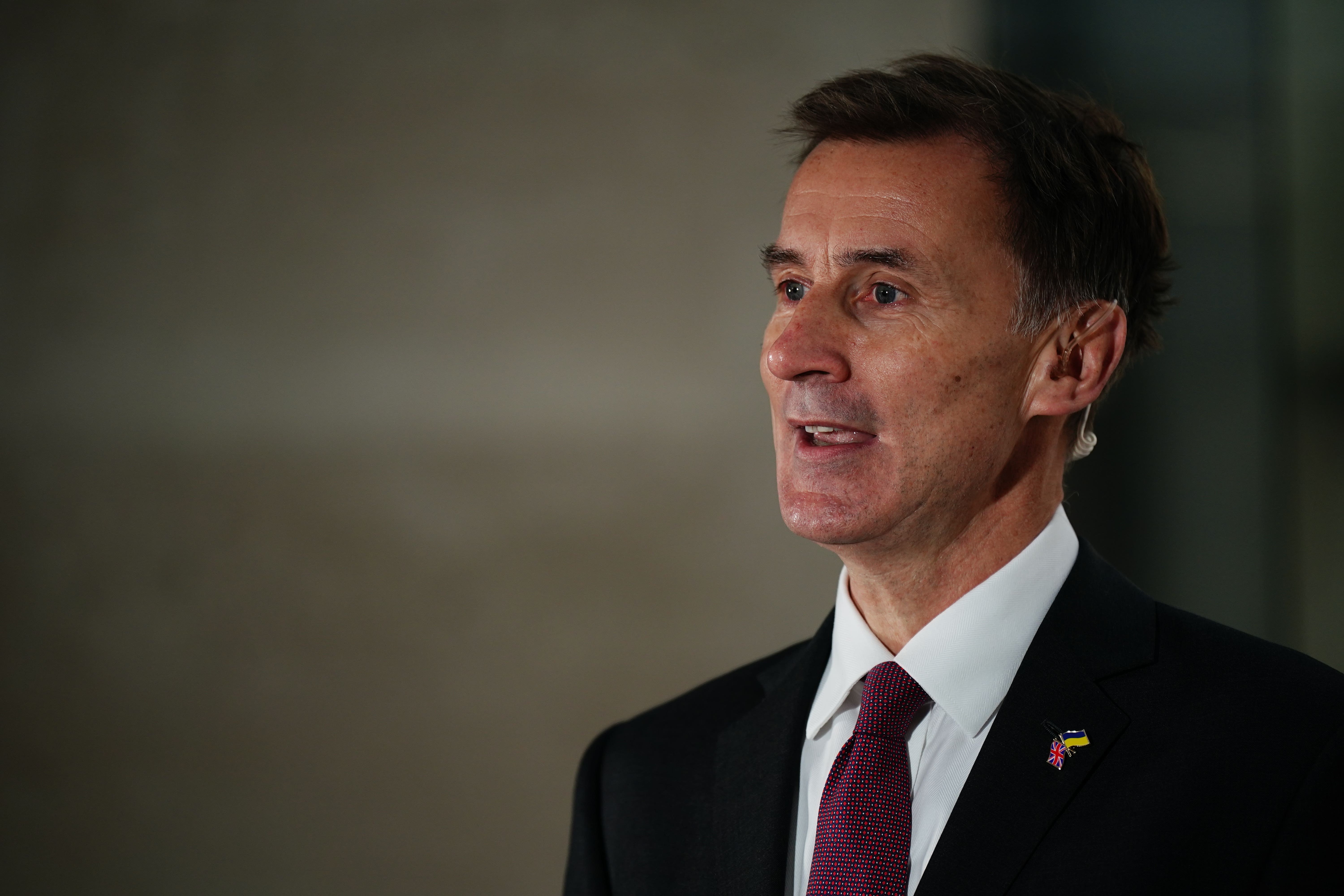Chancellor asks Treasury to look into value of closing non-dom loophole
Jeremy Hunt has come under fire for refusing to abolish the arrangement for those who live in the UK but pay no tax on their offshore income.

Your support helps us to tell the story
From reproductive rights to climate change to Big Tech, The Independent is on the ground when the story is developing. Whether it's investigating the financials of Elon Musk's pro-Trump PAC or producing our latest documentary, 'The A Word', which shines a light on the American women fighting for reproductive rights, we know how important it is to parse out the facts from the messaging.
At such a critical moment in US history, we need reporters on the ground. Your donation allows us to keep sending journalists to speak to both sides of the story.
The Independent is trusted by Americans across the entire political spectrum. And unlike many other quality news outlets, we choose not to lock Americans out of our reporting and analysis with paywalls. We believe quality journalism should be available to everyone, paid for by those who can afford it.
Your support makes all the difference.The Chancellor has asked the Treasury to look into how much could be raised by closing the controversial non-dom tax loophole.
Jeremy Hunt and Rishi Sunak have come under fire for refusing to abolish the arrangement for those who live in this country but pay no UK tax on their offshore income, with Labour accusing the pair of shielding the super-rich from contributing their fair share.
Mr Hunt has disputed suggestions that the move could raise £3 billion per year, arguing he would rather wealthy people “stayed here and spent their money here” than move abroad.
But he admitted last week he did not get Treasury estimates on the financial impact of ending the status, which the Prime Minister’s multi-millionaire wife has held.
The Chancellor has now said he has asked officials to look into how much could be raised by closing the loophole, as he cautioned he does not want to sign off any action that “inadvertently loses us more money than we raise”.
He previously pointed to Treasury uncertainty around the figures “being bandied around”.
Speaking to the Commons Treasury Committee on Wednesday, he denied the suggestion there was “one rule for the rich and another rule for everybody else”.
Asked how much it would raise to close the non-dom loophole, he said: “Well, I’ve asked the Treasury to look into that.”
Presented with some estimates for the value of the move, he said “I’ve asked for that to be looked at. My point was different actually.
“It is that I understand that non-doms pay in tax… all the taxes that they do pay, around £8 billion of tax a year. So I want to make sure that wealthy foreigners pay as much tax in this country as possible.
“Ireland has a non-dom regime. France has a non-dom regime. These are people who are highly mobile, and I want to make sure that we don’t do anything that inadvertently loses us more money than we raise.”
Mr Sunak’s wife, Akshata Murty, was forced to say in April she would pay UK taxes on all her worldwide income after they faced criticism over her non-dom status.
It was estimated that Ms Murty, a fashion designer and the daughter of an Indian billionaire, could have saved up to £20 million in UK tax through the arrangement.
Sir Keir Starmer has accused the Government of having “gone after working people” with tax hikes while doing “nothing about non-dom status”.
In his autumn statement last Thursday, Mr Hunt hiked taxes by £25 billion including with a freeze on the income tax threshold, meaning millions will end up paying more.
He said on Wednesday he is “very concerned” that it is difficult to be a “modern, dynamic economy” if taxes are “too high”, pointing to debt interest payments and health and care costs as key culprits of higher rates.
It is pivotal to bring down inflation and enact “real public service reform” to remedy this, he said, as he insisted he is a Conservative who “believes you should bring taxes down”.
Mr Hunt argued the Tories could “very comfortably” defend their record on growth, but said he wasn’t sure it was “of value” to set a specific target, as Kwasi Kwarteng did.
“But do I agree with the central insight of my predecessor, that the only way we’re going to square the circle of paying for decent public services and being a competitive low tax economy is increasing our growth rate? He was absolutely right to say that,” he said.
The Chancellor froze the thresholds on which income tax rates are paid in the autumn budget, in a move that will drag workers into higher bands as inflation runs high.
He told the committee he did that because “over time, when we can afford to, I want to reduce those headline rates”.
Meanwhile, Mr Hunt said he wished there had not been so much political “instability” in the UK over the course of the last year.
Put to him that the Conservatives have delivered three prime ministers and four chancellors in that time, he told the committee: “I wish we hadn’t had that level of instability.
“But I produced an autumn statement that is designed to restore economic stability and consistency of economic policy-making and I hope we can turn a page on all that instability.”
He argued the “primary” causes of the current economic challenges facing the UK are the “two big shocks” of the pandemic and energy crisis.
“I think it’s wrong to say that this is somehow a uniquely UK issue in terms of the economic instability,” he said.